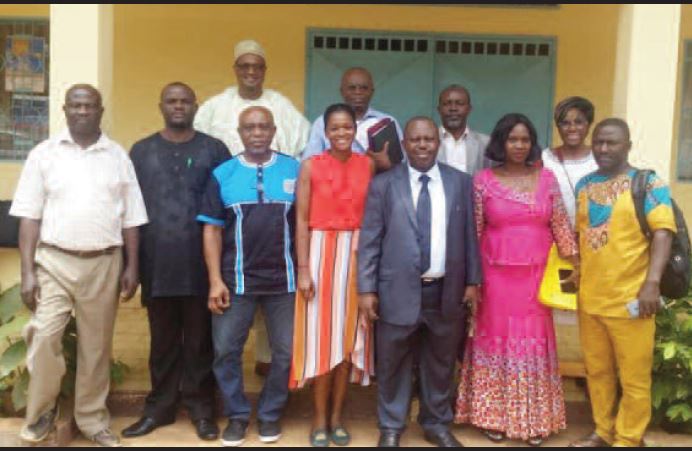
One of the major challenges within the maize value chain is the lack of synergy among the actors beginning from the technology developers, seed producers, maize processors/millers, and farmers.
Constant engagements by value chain actors will ensure that common challenges are articulated and acted upon. This ensures that each value chain actor benefits from their respective segment.
However, this is not the case in many African countries, including Cameroon.
Acknowledging this challenge alongside constant farmer grievances on poor access to inputs, and the fluctuating market prices for maize grains, the Maize Compact of Technologies for African Agricultural Transformation (TAAT) sought to create the first ever official Maize Association in Cameroon.
The association is expected to be an umbrella body for all maize actors in the country to deliver productivity-enhancing technologies with links to markets in order to achieve the TAAT’s mandate.
Sponsored by the African Development Bank as part of its Feed Africa Initiative, TAAT’s main objective is to improve the business of agriculture across Africa by raising agricultural productivity, mitigating risks and promoting diversification and processing in 18 agricultural value chains within eight priority intervention areas.
The programme increases agricultural productivity through the deployment of proven and high-performance agricultural technologies at scale along selected nine commodity compacts which include maize.
Led by African Agricultural Technology Foundation (AATF) the TAAT Maize Compact (TMC) seeks to increase maize productivity, increase uptake and use of high-yielding climate smart maize hybrids by smallholder farmers; and increase income in the maize value chain by facilitating improved market linkages and entrepreneurship.
Following a request by maize value chain actors who attended the TMC inception meeting in Cameroon in 2019 to create a Cameroon Maize Association (CMA), the compact made it a priority to initiate this process and make the dream come true.
Led by its National Coordinator for Cameroon, Dr. Christopher Suh who is equally a maize breeder at the Institute of Agricultural Research for Development (IRAD), the TMC assembled the maize value chain actors in Cameroon including private seed producers, processors and maize off-takers, scientists and farmers to discuss the formation of this association.
Among the key issues addressed on the 10th March 2020 meeting were the association’s leadership, functions, and membership.
Through this initiative an interim executive bureau was created. Dr Mohamadou Bassirou from the Compagnie Fermière du Cameroun emerged as President while Manka Angwafo of Grassland Cameroon and Félicité Tankoua of Maize Cooperative of West Region becaome Vice President and Secretary General respectively.
Other officers include Ndioro A. Mbassa of GAPRIMI and Gideon Baiye of Union of Maize Producers of Southwest Region who emerged as Technical Coordinator and Public Relations Officer.
In his acceptance speech, president of the association, Dr. Bassirou affirmed that initiative will boost maize production in Cameroon. “It will

put in place a good value chain that would enable Cameroonian producers to be better structured in order to have good visibility and serve as a good contact point between public and private institutions”, Bassirou added.
The bureau is mandated to mobilise a maximum number of members, coordinate the development of a consultation for the association within three months and convene within a year, a general consultative meeting during which the association will be officially launched.
The key function of the association is to serve as a platform that brings together all the actors of the maize value chain in Cameroon including individual maize farmers. It is also expected to bring the voice of all the maize actors to the limelight at the national and international levels.
The association will supervise and defend the interests of all its members with a view to improving the conditions of actors in the maize sector and notably increasing maize production.
With the association fully functional, there will be great improvement in the quality and quantity of maize produced in Cameroon as well as beneficial linkages between maize producers and processors. This will tremendously improve the maize value chain in Cameroon.
Participants hailed the initiative and welcomed the association’s mandate of strengthening the link between researchers, producers and consumers of maize for mutual benefit of all, and advising government on policy issues touching on maize.

